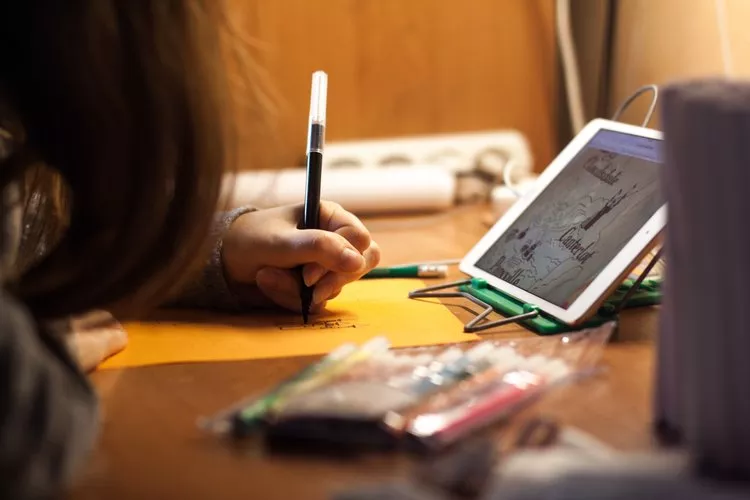Education faces a real challenge. The new millennium arrived with a series of challenges that involved providing quality education, accessible to all citizens of the planet and managing to reduce, as far as possible, the cost of this education. Artificial Intelligence has arrived in the classroom to address this situation and open the doors of the classroom to all kinds of profiles, a fact that undoubtedly represents a disruptive change.
Among the initial applications The first steps of Artificial Intelligence in the classroom include the creation of online platforms for learning; the development of intelligent conversational software, such as chatbots that interact with students in virtual training environments; and educational robotics, which is booming and could even act as tutors in virtual courses. Leaving these first steps aside, and looking to the present and the future, what will be the role of Artificial Intelligence and Machine Learning in the classroom? And most importantly, are we ready for this arrival?
But then, what will its main function be?
Artificial Intelligence will make it possible to differentiate teaching based on the individual characteristics of each student. In other words, it will implement the personalised learningwhich is based on offering each student a study programme adapted to the knowledge and skills he or she possesses and enabling him or her to obtain those that he or she does not yet have in his or her possession. Moreover, it is the student's own progress that sets the path to follow. This situation becomes possible by applying technology to the analysis of a range of data related to educational history, psychosocial profiles, learning styles and the use of cognitive models that can predict how individual students learn.
It will also encourage the communication between teachers and students, making it more orderly and agile inside the classroom... and outside it. Globalisation and Internet penetration allow a student in Spain to communicate with a student in Australia, sharing experiences, knowledge and having the possibility of getting to know other cultures at their fingertips.
And are we prepared for their arrival?
Technology, like society, is constantly evolving. With this in mind, teachers face a key problem: educating the students of the future without knowing what jobs will be available in 20 years' time.
Working for education in such a situation of uncertainty can be very difficult, especially for teachers who spend most of their time in the field of education. tasks which we could consider as administrative: they plan materials for students with different abilities, they constantly assess, and they must verify data and sources for the tasks that their students carry out. With the advent of Artificial Intelligence, this role of the teacher will change, leaving these kinds of tasks behind, to become a kind of guide, knowledge selector and support in the student's learning and evolution path.
Although we do not yet know what the exact job titles of the future will be, we do know that will have to do with technology and that those who can code, understand neuroscience and navigate complex scenarios involving disciplines such as psychology, ethics and systems thinking will be the ones to fill these positions. These profiles, today, are far beyond the reach of the generations currently in the labour market... but for the next generations, they are not. Digital natives first, they will change our way of thinkingAfterwards, the education system and, finally, the employment outlook.
A curious case
With the start of the 2018/2019 school year, the Community of Madrid reached an agreement with IBM to implement "Watson goes to class"The programme is a pilot programme to broaden the skills of future professionals and to work for and with better training of citizens. As he explained Mariano Martín DíazAccording to the director of the Marqués de Suanzes public secondary school in Madrid, one of those taking part in the programme, we use Artificial Intelligence in our daily lives, although "it is something that seems to be very far away and typical of science fiction films". In addition, the aim of this project is for students to become "active users of robotics and cognitive applications".
As indicated by Marta MartínezIBM's president for Spain and Portugal, "artificial intelligence is going to have a big impact on society and companies. It is important that education starts early". For this reason, the project also aims to get students used to being in contact with robotics and cognitive applications, and for this, there is Watson, Artificial Intelligence. The students have access to it for a whole year.
Initiatives such as "Watson goes to class" will undoubtedly change the training of thousands and thousands of young people. Immune Coding Institute was created to bring Artificial Intelligence and new technologies to young people, basing its training on the following pillars: personalised learning, the new role of teachers, where two-way communication between teachers and students is implemented to get the maximum potential out of each of them. Immune's methodology is purely innovative: students learn coding through the resolution of challenges available on Marrow, a platform that works with Artificial Intelligence to personalise the training of each of Immune's students. Want to know more? History is made by those who write it. We prefer to program it. Come to our stand in the classroom and take part in our coding workshops!


